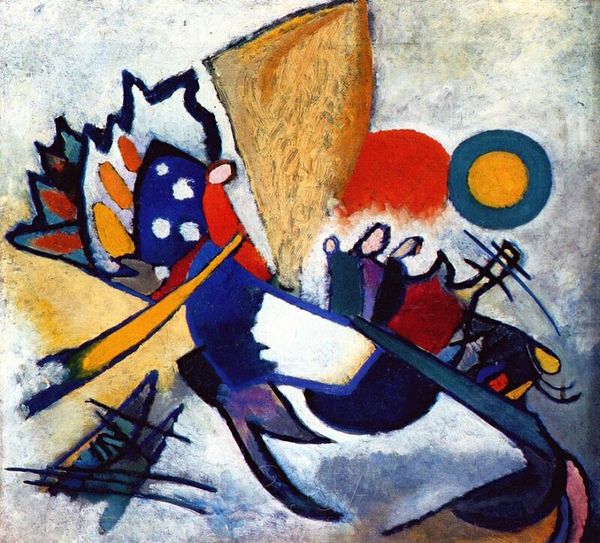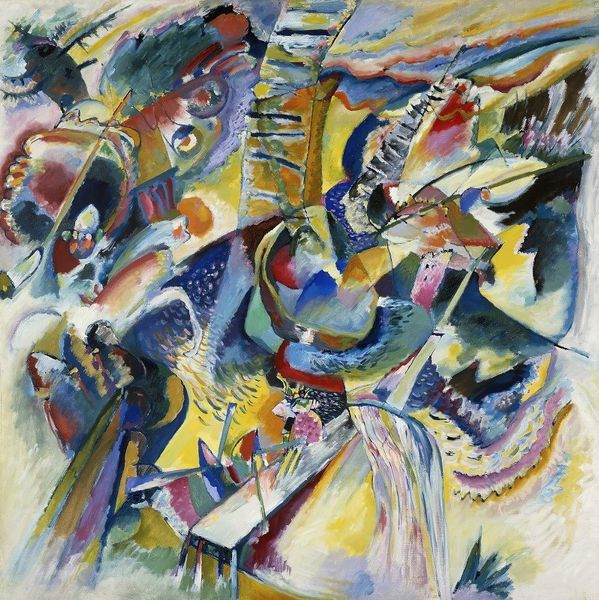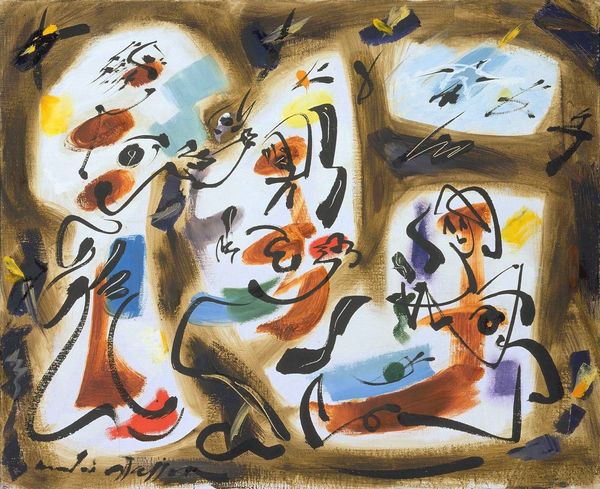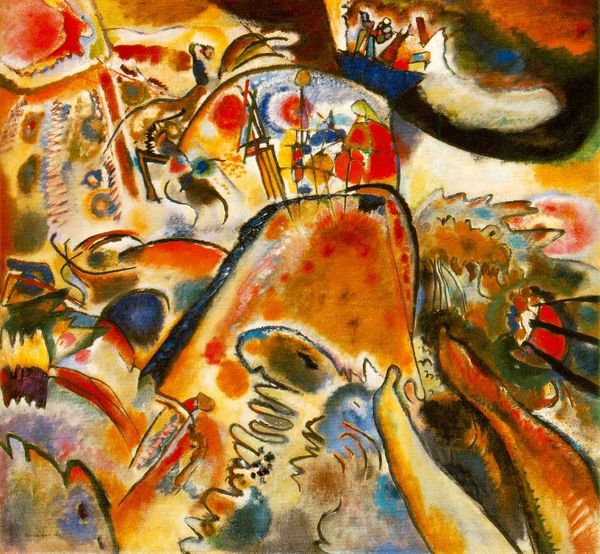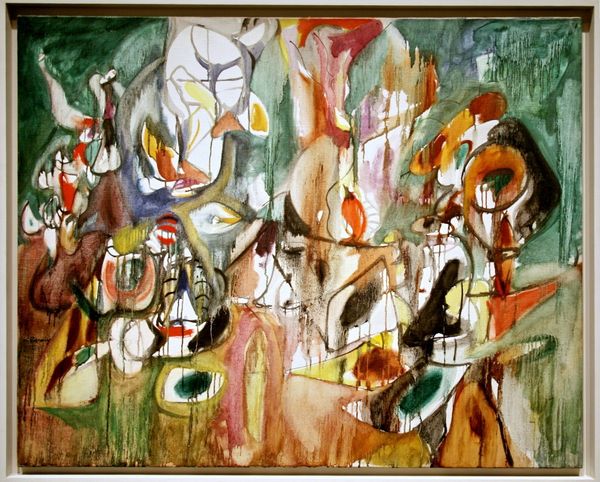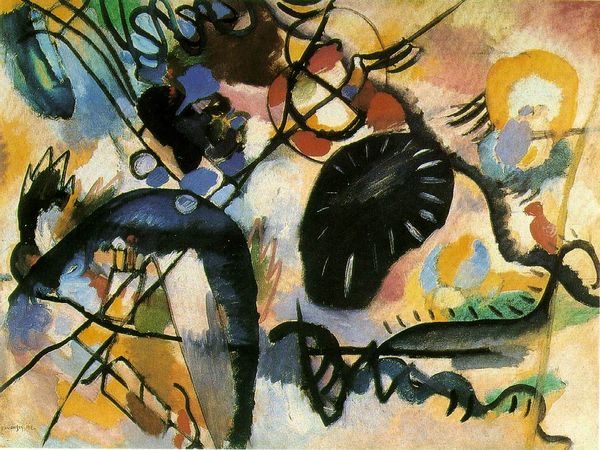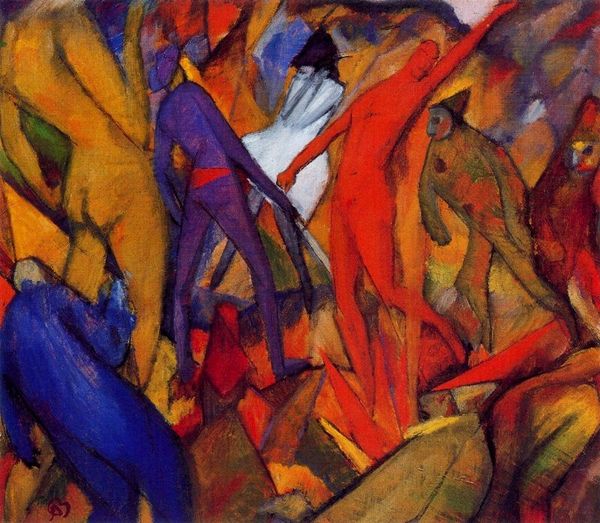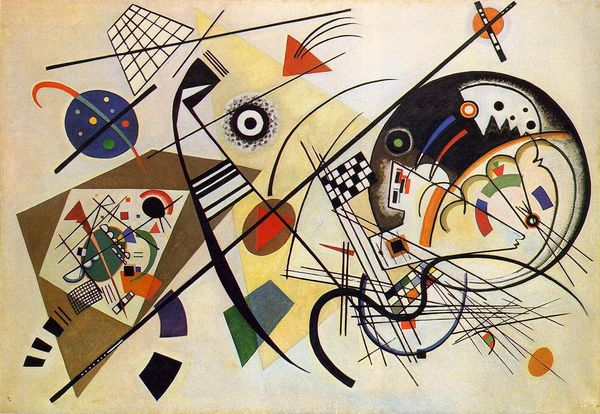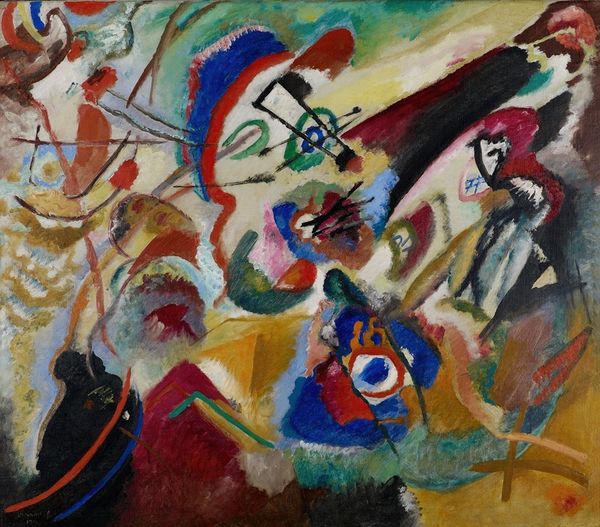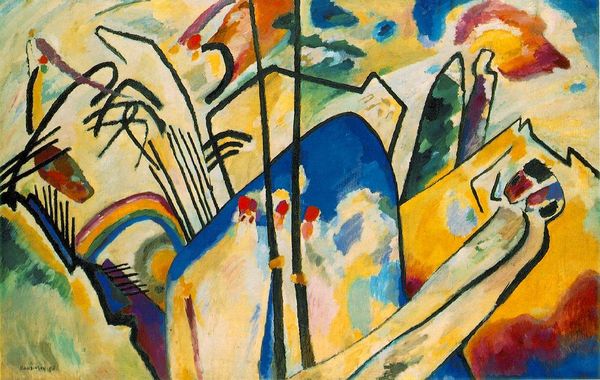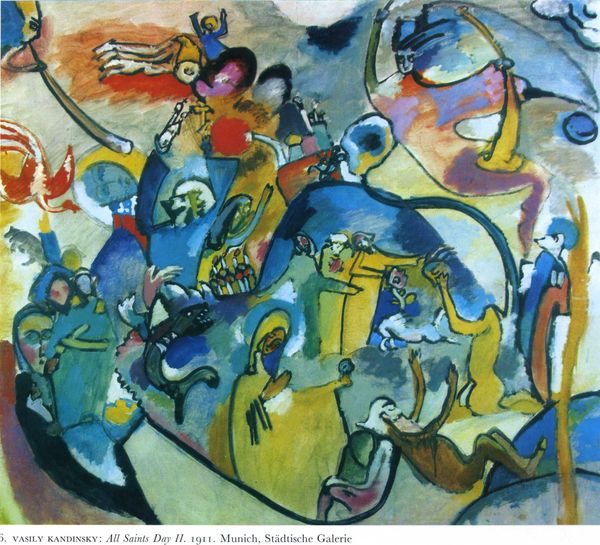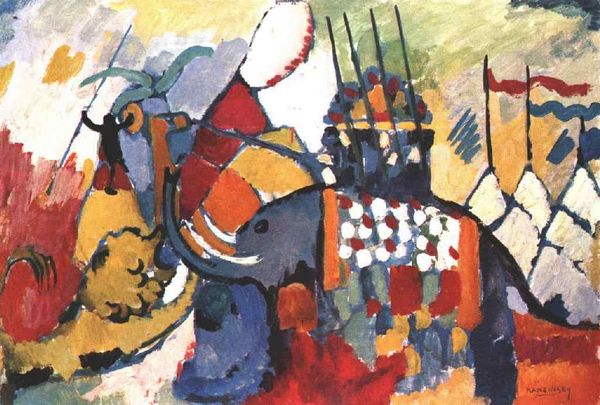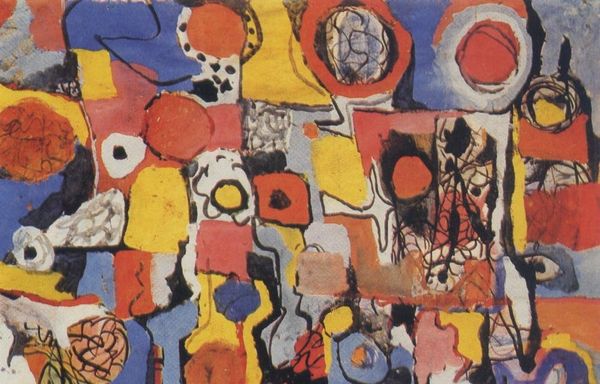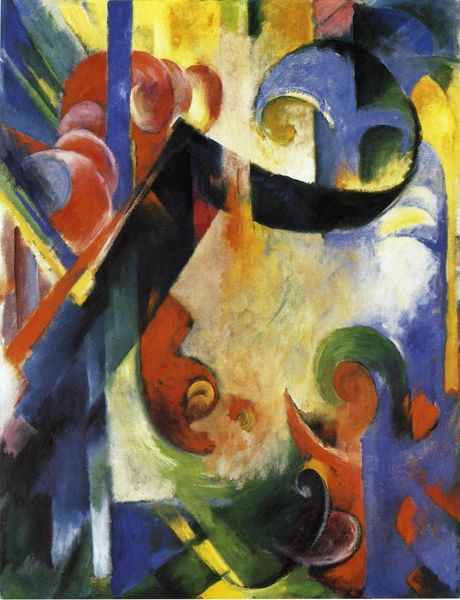
oil-paint
#
abstract-expressionism
#
abstract expressionism
#
organic
#
oil-paint
#
landscape
#
form
#
abstraction
Copyright: Public domain
Editor: Here we have Arshile Gorky's "The Liver is the Cock's Comb," an oil painting from 1944. The longer I look at it, the more chaotic it seems. There's this sense of… suppressed energy, like a contained explosion. How do you interpret this work? Curator: The chaos you perceive is deeply rooted in Gorky's life and the historical context of the 1940s. Think about the Armenian genocide he survived, the looming shadow of World War II, and the personal trauma he endured. This painting, in its biomorphic abstraction, can be seen as a visceral response to that historical moment. Editor: So, the forms aren't just random shapes; they're representative of… trauma? Curator: In a sense, yes. Consider how the title juxtaposes the grotesque ("liver") with the proud ("cock's comb"). This tension, this uncomfortable pairing, mirrors the disruptions and contradictions Gorky experienced. Does that relationship between contrasting words play a role in creating your feeling of contained explosion? Editor: I think so. The title gives the forms a… weight. They become less about pure abstraction and more about lived experience. I also think the colors, the reds and yellows, contribute to that feeling. Curator: Precisely. The colors can evoke violence, passion, and decay, but also, warmth, life and desire. So how do we read that complex mix in connection with historical forces? It raises complex questions, doesn't it? Editor: It does. It's almost like he's using the canvas to process something immense. It seems less like a painting and more like… a wound. Curator: That’s a powerful observation. Perhaps it’s both. Understanding the socio-political currents flowing beneath abstract expressionism is crucial for appreciating its depth and complexity, and appreciating Gorky's work. Editor: I see that now, thank you. This changed how I think about art.
Comments
No comments
Be the first to comment and join the conversation on the ultimate creative platform.
